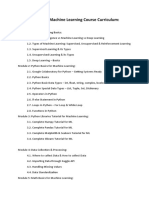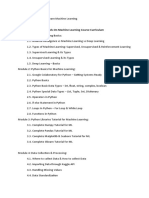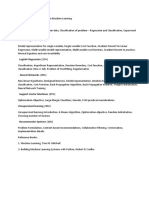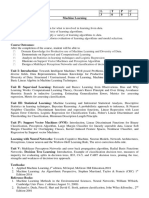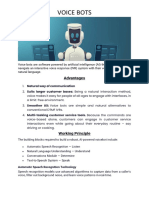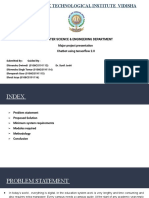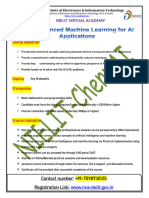0% found this document useful (0 votes)
15 views3 pagesMachine Learning Syllabus
The Machine Learning syllabus covers foundational concepts, mathematical principles, and various types of machine learning including supervised, unsupervised, and reinforcement learning. It includes practical applications, data handling, model evaluation, and advanced topics like neural networks and ethics in ML. Real-world projects and case studies are also incorporated to provide hands-on experience.
Uploaded by
ramshankarroy07Copyright
© © All Rights Reserved
We take content rights seriously. If you suspect this is your content, claim it here.
Available Formats
Download as PDF, TXT or read online on Scribd
0% found this document useful (0 votes)
15 views3 pagesMachine Learning Syllabus
The Machine Learning syllabus covers foundational concepts, mathematical principles, and various types of machine learning including supervised, unsupervised, and reinforcement learning. It includes practical applications, data handling, model evaluation, and advanced topics like neural networks and ethics in ML. Real-world projects and case studies are also incorporated to provide hands-on experience.
Uploaded by
ramshankarroy07Copyright
© © All Rights Reserved
We take content rights seriously. If you suspect this is your content, claim it here.
Available Formats
Download as PDF, TXT or read online on Scribd
/ 3







